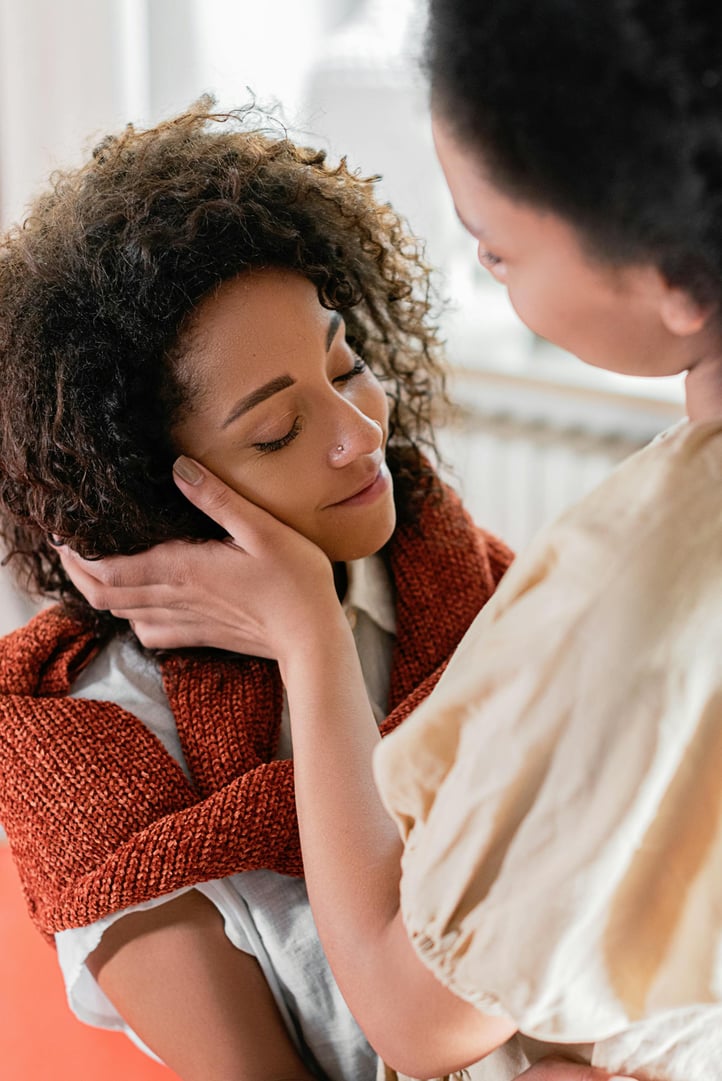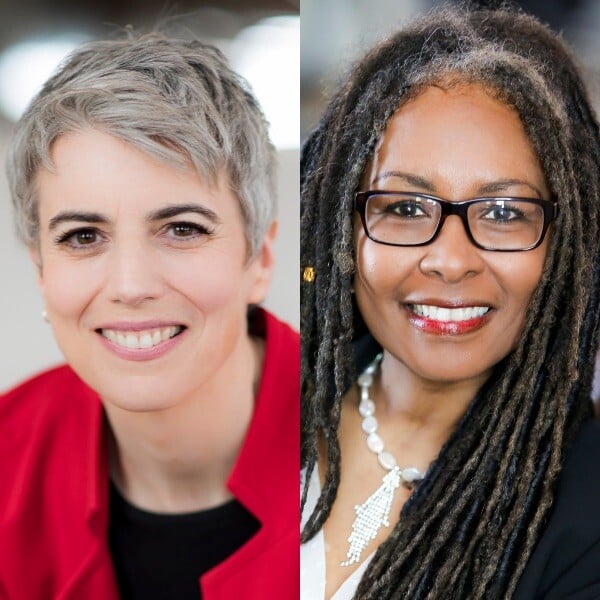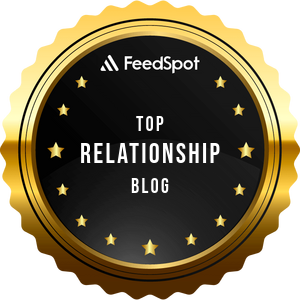
This country is cracking. The cracks aren't subtle anymore. They're full fractures—structural, spiritual, and psychological.
Efforts are being made across the political sphere to suppress open and truthful conversation. Reality is obscured by hook or by crook, and it’s deeper than propaganda and false narratives. We are witnessing a breakdown not just in politics, but in communication, empathy, honesty, and connection—the very qualities that Imago Relationship Therapy helps rebuild.
Can you hear it? The rage is intense. The rhetoric grows more violent, the conspiracy theories more elaborate, the victimhood more acute.
This is the first indication that we're facing more than unhinged white supremacy and insufferable gaslighting—something has moved beyond conventional political win-loss dynamics. We are confronting the unconscious roots of white rage, the expression of unintegrated, ancestral white trauma meeting a world that can no longer hide it.
Imago Relationship Therapy invites us to recognize and heal emotional wounding within relationships. Because, when pain is not integrated, not fully grieved,it does not dissolve. It replicates through echo and reenactment. This is where Carl Jung’s famous principle rings true:
"Until you make the unconscious conscious, it will direct
your life and you will call it fate."
And yet we carry on, don't we? Maybe our persistence under pressure is itself a form of revolutionary grace.
Just as our nation fractures under the weight of disconnection, so too do our relationships suffer when empathy and communication break down.
Living Consciously and Staying Connected in a Culture of Chaos

We wake up to the scent of coffee brewing—the familiar weight of routine pulling us forward: work clothes, goodbye kisses, cereal bowls, and lunch boxes—weaving these tender rituals of normalcy even as the world we knew unravels thread by thread around us.
Even in chaos, our daily rituals remind us of the human need for connection—a core principle in Imago Relationship Therapy, which teaches that connection is our greatest source of healing.
Can you feel it? Yet, when we dare to step outside our performance of the status quo and peer into the blue light of our devices; when we surrender to the hypnotic pull of infinite scrolling or glimpse the theatre of cruelty playing on repeat—those infantile tantrums masquerading as governance and leadership—our sanctuary crumbles. In these moments, emotional safety—the foundation of every healthy relationship—feels distant.
The holy pause becomes unholy as the sociopathic spectacle crashes over us, and our fragile human systems buckle under realities we were never meant to metabolize. We surface gasping: grief-sick, shock-stunned, hearts splintering, terror-flooded, drowning in the mirage of our own powerlessness.
As experienced Imago Relationship Therapy practitioners, trained in the alchemy of transformation—shifting from the primitive brain's reactivity to the evolved heart's compassion and curiosity—we once moved through this transition like dancers who know their steps by heart.
But today, even the simple act of entering a coffee shop, joining an AA meeting, browsing our local Farmers’ market, boarding a plane sends waves of ancient panic through our nervous systems. It demands nothing less than warrior-sage intentional communication, conscious presence, and relational awareness to dissolve the suffocating fog of fear and remember our way home to curiosity, awe, and wonder.
How to Stay Connected as a Couple When the World Feels Divided

If the world outside feels divided, the work inside our relationships becomes even more sacred. We may find ourselves asking:
- How do we hold sacred connection in our relationships amid constant assaults on human dignity and emotional safety?
Choose Hope Over Despair
"Hope has holes in its pockets. It leaves little crumb trails so that we, when anxious,
can follow it. Hope’s secret: it doesn’t know the destination–it knows only
that all roads begin with one foot in front of the other."
Rosemerry Wahtola Trommer.
The kind of hope we choose isn't naïve or wishful thinking—it's clear-eyed about challenges while refusing to capitulate to them. Hope is the foundation of emotional resilience and conscious love. The real test of everything we've learned and taught—everything we believe about conscious relationships—comes not in the therapy room, but in the moments when the world's chaos crashes into our lives. Those are the moments that reveal whether we turn toward each other or away.
An Imago Relationship Therapy Lesson in Love and Healing

This summer, my partner, Yael, and I got a masterclass in the choice of love and healing.
We had planned a long-awaited vacation to Maine—a five-star hotel listed as pet-friendly so we could bring Regi and Niles, our two green-cheeked conures who are family to us. After a three-hour drive, we rolled our wagon full of bird cages and luggage into the elegant lobby, exhausted and excited. The white woman at the front desk took one look at our little caravan and informed us that they don’t accept birds. Only dogs—and in special cases miniature ponies.
We’ve seen a million variations of this kind of knee-jerk rejection. My first feeling was familiar—rejection—we'd been anticipating this retreat for months. But through the lens of my double consciousness, the receptionist’s tone screamed racism and homophobia. It stung in that familiar way that twenty years of similar encounters had taught me to expect.
I could feel Yael beside me gearing up to argue, still learning that trying to reason with systemic exclusion is futile. At that moment, I faced a choice. Where situations like this had once triggered days of trauma responses, disconnection, and resentment, I did something different.
Instead of turning away from Yael in shame or anger, or the urge to protect myself from anti-blackness, I turned toward her. This is the essence of what twenty years of Imago Relationship Therapy has given us: the ability to move toward each other when the world pushes us apart.
In that hotel lobby, I could feel my nervous system activate—the familiar cocktail of hypervigilance, rage, and the impulse to flee. But years of intentional dialogue had taught me that my partner is not my enemy, even when we're both triggered. Especially when we're both triggered.
"Let's go," I whispered to Yael, gently placing my hand on her arm as she continued to engage with the desk clerk. This wasn't about giving up or giving in; it was about choosing us. Choosing our connection over choosing the illusion of control or trying to change someone else's bigotry and prejudice in that moment.
That single moment—quiet, deliberate—became our act of resistance.
Love is Forged Through Conflict: Imago Therapy Lessons for Couples

In our current climate, political stress and social division don’t just affect us individually—they seep into our most intimate bonds. When external chaos triggers internal wounds, or when trauma and differences surface between partners, these moments become sacred opportunities for healing and growth.
Three key areas help forge couples through conflict.
1. The Daily Practice of Staying Present: Imago Tools for Stronger Relationships
Imago's three-step process of mirroring, validation, and empathy has become our lifeline. So, when my partner, Yael, returns home after scrolling through news of another mass shooting or a rollback of human rights, I don't try to immediately fix, minimize, or redirect her feelings.
- I mirror back what I hear: "You're feeling hopeless about the state of the world and worried about our safety,"
- I validate her experience: "That makes sense. These are genuinely terrifying times."
- And then I stretch to find empathy: "I can imagine how exhausting it must be to carry that level of hypervigilance every day."
This practice doesn't make the external chaos disappear, but it creates a sanctuary of understanding and emotional safety between us. It reminds us that connection and empathy are choices we can return to again and again.
2. Slowing Down To Heal and Reconnect In Your Relationships
Slowing down takes fierce courage in a world that equates speed with success. It means making peace with uncertainty—resisting the compulsion for instant answers and learning to dwell in the space of not knowing. It means staying with whatever uncomfortable emotions surface instead of rushing toward escape.
Growth in relationships wears the mask of chaos. That’s why slowing down isn’t a luxury—it’s a necessity for connection. Conflict isn't the enemy of love—it's the teacher of intimacy.
When we approach our partner with curiosity instead of defensiveness, we open the doorway to empathy and understanding. Through curiosity's lens, every fight becomes a sacred window into the tender needs and formative stories that live inside our beloved.
At a time when our culture rewards speed over depth and judgment over understanding, choosing to pause and stay curious becomes a revolutionary act of conscious love.
3. Learning to Feel Safe in Love and Relationships Together
If emotional safety is what allows hearts to open, then slowing down is how we learn to hold space sacred enough for truth-telling. The rhythm of feeling safe together matters.
Pause. Reflect. Notice.
In this gentleness, we become fluent in our partner's subtle language—the way their voice drops when they're afraid, how their eyes change when they're reaching for words to name what hurts. Our undivided attention becomes the bridge between our partner’s inner world and ours.
Love as an Act of Resistance: Building Conscious Relationships in Difficult Times

This is how we tend our love in turbulent times—not by pretending the turbulence doesn’t exist, but by turning toward each other with awareness and compassion. Again and again. Not by avoiding the painful realities of our world, but by creating a partnership strong enough to face them together.
The world may be burning, but in the sanctuary of conscious relationships, we practice the kind of love that could put out the fire.
If you and your partner are struggling to turn toward one another during challenging times, we’re here to support you through Relationship Therapy and Relationship Workshops - wherever you are.
Discover more about Imago with our Imago Professional Membership, Imago Professional Facilitators, Imago Professional Training, and Imago Educational Webinars.
 This blog post was written by Yael Bat-Shimon, an Advanced Imago Relationship Therapist & Workshop Presenter, musician, writer, and facilitator of trainings for white therapists to develop racial identity awareness, and Dr. Paula M. Smith, a Certified Advanced Imago Therapist, culturally attuned Marriage and Family Therapist, Adjunct Professor, and published author. Married for 19 years, Yael and Paula co-founded the Interracial Relationships Collaborative.
This blog post was written by Yael Bat-Shimon, an Advanced Imago Relationship Therapist & Workshop Presenter, musician, writer, and facilitator of trainings for white therapists to develop racial identity awareness, and Dr. Paula M. Smith, a Certified Advanced Imago Therapist, culturally attuned Marriage and Family Therapist, Adjunct Professor, and published author. Married for 19 years, Yael and Paula co-founded the Interracial Relationships Collaborative.
Discover Yael and Paula’s website too!



